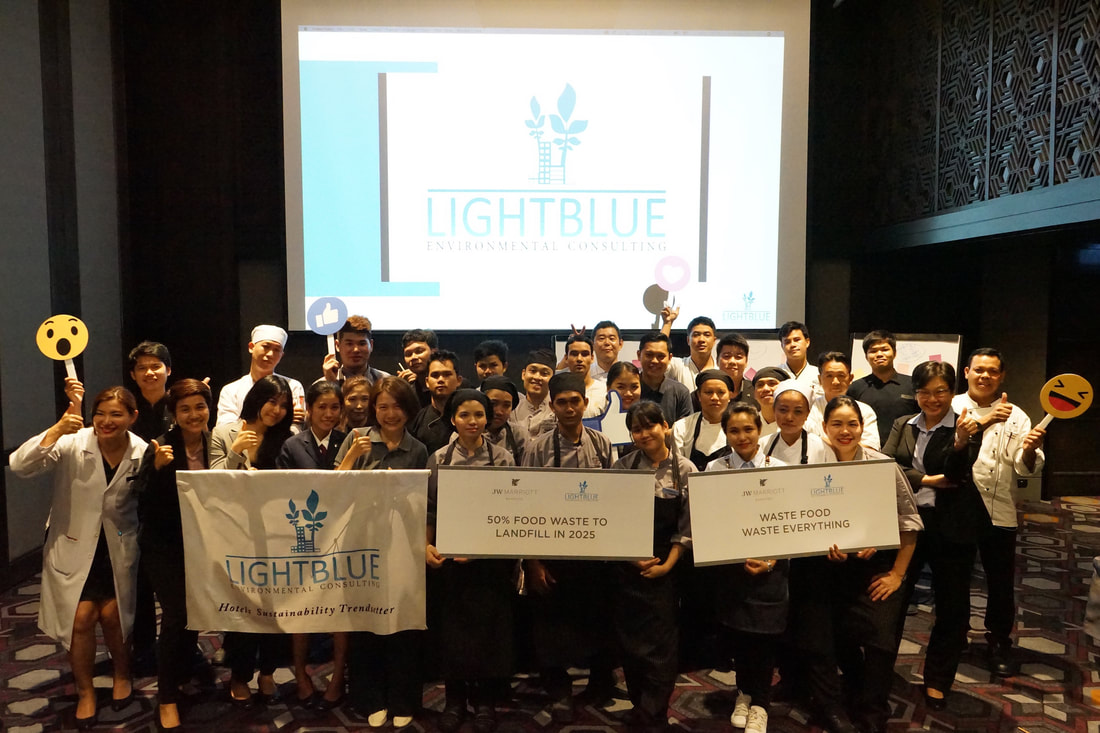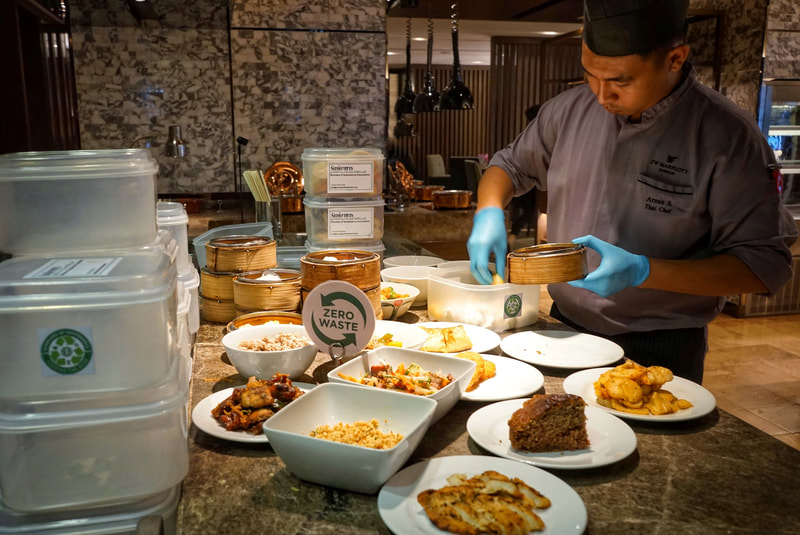Hotel plans to outdo itself this year after successful implementation of the project in 2018.
Following last year’s successful reduction in food wastage at its JW Café and BBCO outlets, JW Marriott Hotel Bangkok is now gearing up for an even more efficient implementation of its food waste prevention program.
As JW Marriott Hotel Bangkok Executive Chef Kevin Thomson explains, “We asked Lightblue Environmental Consulting to help us to establish the exact amount of food waste being generated by JW Café and BBCO, which turned out to be quite a lot, and this figure became our baseline measurement. Now, I am happy to report that JW Marriott Hotel Bangkok has significantly reduced its total food wastage against our baseline, a positive trend we have enjoyed since we began this project,”
“We are looking forward to fulfilling our commitment to reduce our food-waste footprint. We still have a long way to go to reach our goal of zero landfill-waste in 2019, but we are getting there.”
While relatively new to the initiative, JW Marriott Hotel Bangkok has been successful in stepping up efforts to avoid food waste. The hotel’s food- waste reduction efforts align with the goal of parent Marriott International for a 50% group-wide reduction in food waste by 2025. The initiative also focuses on specific areas of the preparation and serving process where steps can be taken to reduce waste.
As JW Marriott Hotel Bangkok Executive Chef Kevin Thomson explains, “We asked Lightblue Environmental Consulting to help us to establish the exact amount of food waste being generated by JW Café and BBCO, which turned out to be quite a lot, and this figure became our baseline measurement. Now, I am happy to report that JW Marriott Hotel Bangkok has significantly reduced its total food wastage against our baseline, a positive trend we have enjoyed since we began this project,”
“We are looking forward to fulfilling our commitment to reduce our food-waste footprint. We still have a long way to go to reach our goal of zero landfill-waste in 2019, but we are getting there.”
While relatively new to the initiative, JW Marriott Hotel Bangkok has been successful in stepping up efforts to avoid food waste. The hotel’s food- waste reduction efforts align with the goal of parent Marriott International for a 50% group-wide reduction in food waste by 2025. The initiative also focuses on specific areas of the preparation and serving process where steps can be taken to reduce waste.
Over the past six months, the hotel has seen positive results from its food waste initiative. Using a baseline sampling calculated from the total weight of food collected from the buffet serving line and kitchen-prep area (excluding plate-waste) over a period of two weeks, there was a significant monthly reduction in food waste per guest. JW Marriott Hotel Bangkok credits this early success to its partnership with Lightblue Consulting, which was instrumental in training our staff on compliance and merits of the campaign. The hotel's progressive outlook and supportive policies also help make the awareness campaign less daunting. According to comments by guests and others, results from these efforts can already be seen.
To ensure that the success of 2019 is surpassed, JW Marriott Hotel Bangkok has just established clear guidelines for implementing the hotel’s food waste prevention project more efficiently. We continue to develop local talent with internal awareness training about the project for all associates, starting from orientation when we drive home the importance of achieving food waste reduction, and that it is only possible with support and drive of everyone toward achieving our goals.
Other waste-reduction measures we are currently looking into include a process which converts oyster shells and pineapple trimmings into cleaning agents. The plan also includes slightly reducing amounts of milk and fruit juice put in buffet service decanters, and monitoring buffet preparation and clearing processes. We are also receiving guidance from charity food distributor SOS project (Scholar of Sustenance Foundation Thailand) on surplus food management.
“We did a good job in 2018” proclaimed the executive chef, “but we hope to outdo ourselves this year and get even better results from our food waste prevention program, and we are optimistic that we will again succeed.”
To ensure that the success of 2019 is surpassed, JW Marriott Hotel Bangkok has just established clear guidelines for implementing the hotel’s food waste prevention project more efficiently. We continue to develop local talent with internal awareness training about the project for all associates, starting from orientation when we drive home the importance of achieving food waste reduction, and that it is only possible with support and drive of everyone toward achieving our goals.
Other waste-reduction measures we are currently looking into include a process which converts oyster shells and pineapple trimmings into cleaning agents. The plan also includes slightly reducing amounts of milk and fruit juice put in buffet service decanters, and monitoring buffet preparation and clearing processes. We are also receiving guidance from charity food distributor SOS project (Scholar of Sustenance Foundation Thailand) on surplus food management.
“We did a good job in 2018” proclaimed the executive chef, “but we hope to outdo ourselves this year and get even better results from our food waste prevention program, and we are optimistic that we will again succeed.”






















